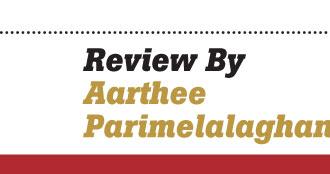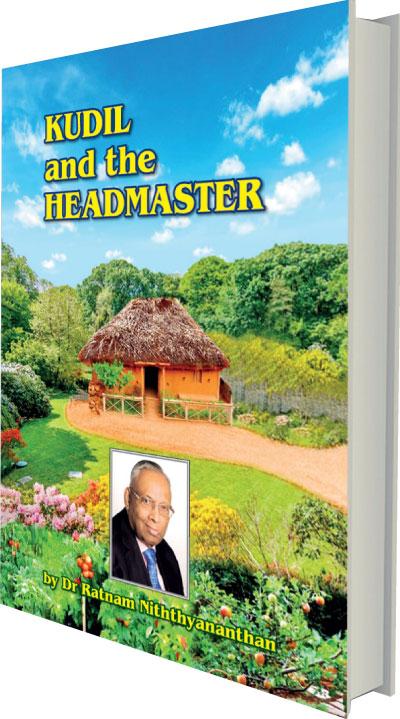Reply To:
Name - Reply Comment
 Dr Niththyanantham’s autobiography, known to many as ‘Nithy’, is a revealing insight into the experience of the first wave of Sri Lankan migrants to Britain in the 1960s. KUDIL and the HEADMASTER eloquently depicts an individual family’s experience moving across nations for better prospects. The book opens in rural Sri Lanka, with Nithy recounting how his parents’ lives have informed his own. We see what he gleaned from their parenting and relationship, and how he is able to reflect on it now as a married father.
Dr Niththyanantham’s autobiography, known to many as ‘Nithy’, is a revealing insight into the experience of the first wave of Sri Lankan migrants to Britain in the 1960s. KUDIL and the HEADMASTER eloquently depicts an individual family’s experience moving across nations for better prospects. The book opens in rural Sri Lanka, with Nithy recounting how his parents’ lives have informed his own. We see what he gleaned from their parenting and relationship, and how he is able to reflect on it now as a married father.
 From this very outset, the reader understands that Nithy is shaped by his humble beginnings in which his parents imposed a dream for education, something which the author continues to champion. As a second-generation Sri Lankan immigrant I particularly enjoyed the opening half of the memoir which lovingly paints what life was like in the small Sri Lankan village, Sithankerny. I found myself gripped by these depictions as they told stories of places I have not had the chance to fully explore, having been brought up in England, specifically, London. I was equally consumed by what life was like for a young Nithy in 1960s London as he pursued further education, and was able to find his own community in a place so far away from home. One integral part of these new foundations is his relationship with his wife, Saro, who he met at university but took several months to work up the courage to approach her! They later agreed to marry, and she moved to join him in the UK, creating the basis for his home away from home. There is a sense throughout that a good life cannot be achieved through only wealth, or strong educational systems alone. There must be a dream, an invisible thread, which pulls you to the places you want to go. The desire for education was and is Nithy’s dream, not just for himself, but for everyone he meets. A shocking twist perhaps, for the man who admits he was ‘no shining star’ at school, and even went out of his way to devise a system to avoid his father’s spelling tests – misdemeanour he now regrets in later life! This is something he has established through his own words but also through his life’s work, from achievements as a pioneering scientist to the Headteacher of the West London Tamil School. The rest of the short book details how he took those pieces he was given early on and built them up into the thriving Sri Lankan community we have today. The journey of the London Tamil Centre and Ratnam Foundation, and his dedication to creating opportunities and experiences for the generations to come after him, both here in the UK and back home, was eye opening. The passion with which he describes those undertakings is palpable. But most of all I was touched by a desire he describes which I recognise from my own life and many of those close to me. And that desire is the one to do best by his children, giving them the best possible education and opportunities. He explains how important this part of his life is and it’s a pride his own children clearly also have in him too. What sets Nithy apart is that despite all the toils and hardships of life he has found the time, space, and clarity of mind to ensure that the home he found in London in 1966 could continue to be a home away from home. And he’s built these foundations for the entire Sri Lankan Tamil Community, especially those like myself, who have not had the fortune to really see the first home, in Sri Lanka. This is a short memoir but an important one. Many times I have sat and pieced small pieces of my parents’ stories together. Life in the village, getting water from the well; the start of the riots in ‘83; the journey of migration to nations like Australia and the UK. I have regretted the time I lost with my grandparents, time in which I didn’t think to ask them about their lives in Colombo and Jaffna. I was too young, and now I have lost their stories forever. Reading this book has allowed me to realise that as I have matured into adulthood these last few years, I still feel like a child regarding knowledge of my heritage. I have read many stories set around the world, but those from the first generation of Sri Lankan migrants – stories that exist in my own home – seem yet to be told. For me, this book is symbolic because it is the first of many I hope to read throughout my life. Written by people who look like me, and share stories similar to those I find myself piecing together in quiet moments. This book is pivotal, because it is brought into existence by a man, who himself has brought together the younger community which is ready to receive that history. And it’s important, because it speaks to a larger question I want answered: who am I? Read Dr Niththyananthan’s autobiography, not just to learn about the life of an extraordinary man, but to fully appreciate the life you lead today.
From this very outset, the reader understands that Nithy is shaped by his humble beginnings in which his parents imposed a dream for education, something which the author continues to champion. As a second-generation Sri Lankan immigrant I particularly enjoyed the opening half of the memoir which lovingly paints what life was like in the small Sri Lankan village, Sithankerny. I found myself gripped by these depictions as they told stories of places I have not had the chance to fully explore, having been brought up in England, specifically, London. I was equally consumed by what life was like for a young Nithy in 1960s London as he pursued further education, and was able to find his own community in a place so far away from home. One integral part of these new foundations is his relationship with his wife, Saro, who he met at university but took several months to work up the courage to approach her! They later agreed to marry, and she moved to join him in the UK, creating the basis for his home away from home. There is a sense throughout that a good life cannot be achieved through only wealth, or strong educational systems alone. There must be a dream, an invisible thread, which pulls you to the places you want to go. The desire for education was and is Nithy’s dream, not just for himself, but for everyone he meets. A shocking twist perhaps, for the man who admits he was ‘no shining star’ at school, and even went out of his way to devise a system to avoid his father’s spelling tests – misdemeanour he now regrets in later life! This is something he has established through his own words but also through his life’s work, from achievements as a pioneering scientist to the Headteacher of the West London Tamil School. The rest of the short book details how he took those pieces he was given early on and built them up into the thriving Sri Lankan community we have today. The journey of the London Tamil Centre and Ratnam Foundation, and his dedication to creating opportunities and experiences for the generations to come after him, both here in the UK and back home, was eye opening. The passion with which he describes those undertakings is palpable. But most of all I was touched by a desire he describes which I recognise from my own life and many of those close to me. And that desire is the one to do best by his children, giving them the best possible education and opportunities. He explains how important this part of his life is and it’s a pride his own children clearly also have in him too. What sets Nithy apart is that despite all the toils and hardships of life he has found the time, space, and clarity of mind to ensure that the home he found in London in 1966 could continue to be a home away from home. And he’s built these foundations for the entire Sri Lankan Tamil Community, especially those like myself, who have not had the fortune to really see the first home, in Sri Lanka. This is a short memoir but an important one. Many times I have sat and pieced small pieces of my parents’ stories together. Life in the village, getting water from the well; the start of the riots in ‘83; the journey of migration to nations like Australia and the UK. I have regretted the time I lost with my grandparents, time in which I didn’t think to ask them about their lives in Colombo and Jaffna. I was too young, and now I have lost their stories forever. Reading this book has allowed me to realise that as I have matured into adulthood these last few years, I still feel like a child regarding knowledge of my heritage. I have read many stories set around the world, but those from the first generation of Sri Lankan migrants – stories that exist in my own home – seem yet to be told. For me, this book is symbolic because it is the first of many I hope to read throughout my life. Written by people who look like me, and share stories similar to those I find myself piecing together in quiet moments. This book is pivotal, because it is brought into existence by a man, who himself has brought together the younger community which is ready to receive that history. And it’s important, because it speaks to a larger question I want answered: who am I? Read Dr Niththyananthan’s autobiography, not just to learn about the life of an extraordinary man, but to fully appreciate the life you lead today.